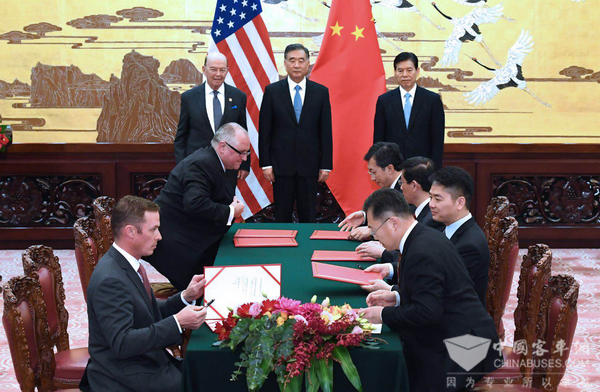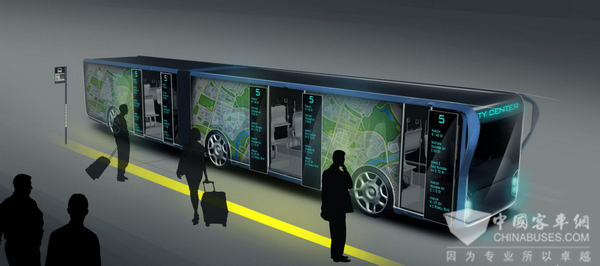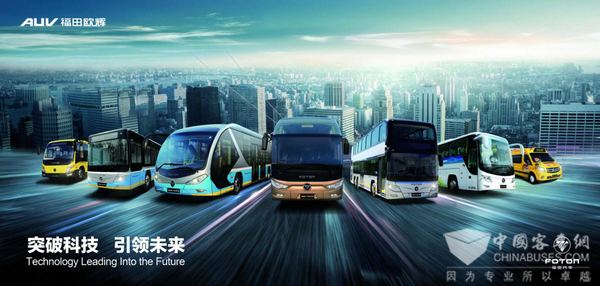During U.S. president Trump’s visit to China, the two countries have signed a number of eye-catching agreements with the total value reaching a record high of 253.5 billion USD. On November 8, Foton AUV and U.S.-based TDG Group signed a Memorandum of Cooperation on Developing Public Transport Solutions for Smart Cities.

According to the memorandum, the two parties will carry out in-depth cooperation in a number of areas, such as designing and innovating smarter public transport solutions. In addition, they are planning to roll out two new products: one is the Foton AUV 12-meter electric bus and the other is a 2-meter self-driving small electric bus. It has also been revealed that the 12-meter electric bus will make its debut in Wellington, New Zealand soon and then start commercial operation in other countries. The 2-meter self-driving small electric bus can pre-set its operation routes by taking full advantage of its GPS and perform such complex tasks as detecting barriers, queuing and stopping at pre-determined stops. The vehicle can also add new carriages according to the number of passengers.
As one of the leading brands in the new energy bus industry, Foton AUV was the only enterprise in China’s auto industry that has secured such a high-profile deal. Now, the company is in a better position to go global and help cities across the world to go smart.

In recent years, Foton AUV has taking the lead in developing driverless vehicles. On January 11, 2016, it rolled out Zhilan New Energy Integrated Solutions and revealed its BJ6180 on-line recharging driver-less electric city bus to the public. Equipped with state-of-art radar systems, lane piloting, laser positioning device, GPS, infrared camera, multi-dimensional imaging and tire programmer, BJ6180 immediately brought seismic impacts on the new energy vehicle industry. We have strong reasons to believe that the era of driver-less public transport will soon become a reality.
Apart from developing hybrid and electric vehicles, Foton AUV launched its fuel cell bus development program as early as 2006 with Tsinghua University. Two years later, its first generation fuel cell buses were put into service at Beijing Olympic Games. In 2014, successfully overcoming such bottlenecks as high production costs, short life expectancy of fuel cells, Foton AUV’s second generation 12-meter fuel cell bus was born. Soon, its third generation 8.5-meter fuel cell bus made its debut. In 2016, the vehicle set a record in the history of fuel cell bus sales, which has significantly promoted the visibility of such kind of vehicles in public.
Now, Foton AUV is undergoing a transformation from just a bus manufacturer to a hi-tech enterprise specialized in developing new energy and intelligent vehicles for green public transport.
So far, Foton AUV has established a formidable presence in both domestic and international markets, pushing Chinese bus manufacturing industry to a new height. In 2017, it exported 1,000 units clean energy city buses to Myanmar, breaking the record in China’s bus export this year.In many countries in Southeast Asia and Africa, Foton AUV not only provides a variety of bus products, but also offers its customers comprehensive public transport solutions. Now, it has made breakthroughs in several overseas markets, including Saudi Arabia, Myanmar, Uganda, and Georgia.()
